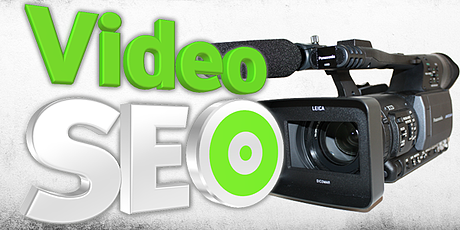Video SEO Services Optimize Your Videos For Better Online Visibility
Optimizing video for search engines on the web follows the same premise as optimizing any other...


SEO stands for Search Engine Optimization. I know what search engines are, and I know what optimization means, so this should be easy. In concept, it is. Get as many people to come to my website as possible when they search for certain words. Simple. So, the more times I use those particular words, the higher I’ll show up on the results page…. Right?
Well, the deeper you go down the rabbit hole the more confusing it gets – and fast!! The following are some topics that you need to know about SEO, to help you compete in the ever-changing world of search engines. Hopefully, afterward, you’ll understand what SEO is a little better, and be more informed as to how it can promote your company and website.
What is SEO?
According to Wikipedia, SEO is the process of affecting the visibility of a website or a web page in a search engine's "natural" or un-paid ("organic") search results. In general, the earlier (or higher ranked on the search results page), and more frequently a site appears in the search results list, the more visitors it will receive from the search engine's users.
Organic vs. Inorganic
Organic search results are those that are not paid for. Each search engine has its own algorithm that, for free, scientifically decides where each website ends up on the search results list. Inorganic search results are paid for. These are the results that often appear, separated, at the top or right of the page (i.e. “Sponsored Pages”).
What are Keywords?
Keywords can be any words on any webpage. Useful keywords and key phrases actually tell a user something about the subject and content of a page. The role of keywords has changed over the years. Originally search engines could crawl sites for keywords and rank sites in search results based on the number of times a word appeared on a page. However, people began abusing this practice to show up higher in searches, and sometimes even landed in unrelated searches – this is known as Keyword Stuffing. For this reason, the importance of keywords in SEO has been greatly reduced, and is not weighted as greatly in SEO.
Should I Include Keywords in my Domain Name?
Your domain name should be specific to your company - if a keyword is naturally part of your company’s name, then by all means. But, do not try to fit a keyword in just to use it. This will not help your SEO, and could backfire, by confusing searchers and potential customers.
What’s the Right Number of Keywords?
Keywords should be naturally used throughout your site. Don’t force them. There’s no keyword “magic number”, but if you find yourself counting, then you’re probably overdoing it. You need to know your target audience, and appeal to what matters to them most - your keywords should occur in your content logically.
What are Meta Descriptions?
Meta descriptions are those brief sentences under your URL in the search engine result summarizing the page. They were often over-populated with keywords to help boost a page in the results. Now, a compelling line or two is better to entice the searcher to your website.
Internal vs. Inbound Links
Internal links are links on your website that bring a visitor to another page on your site. Inbound links are on a separate website, and bring visitors to a page on your site.
What’s the Right Number of Internal Links?
See #5. Again, there’s no “magic number” of internal links. Appealing to your target audience is what matters. Links should only be included to enhance their stay on your site.
Do I Need To Know Code for SEO?
Code is not necessary, but could come in handy for more advanced aspects of SEO. Like with anything, the more you know, the better equipped you are to achieve success. So, a little goes a long way.
Indexing vs. Crawling
Search engines use “internet bots” to systematically browse, or crawl, the entire internet, including your website. Crawlers copy all the pages they visit for later processing, or indexing. Those pages are then indexed to determine which pages will be used so that users can search them much more quickly. Important to remember is that not all pages that are crawled will be indexed by the search engine. Crawlers can also validate links and code.
What is robots.txt?
This is an instructional text file for a website. Internet bots try to obtain this file and read the instructions before getting any other file from the website. If this file doesn't exist, the bots assume no specific instructions, and crawl the entire site.
What is the sitemap.xml File?
This file lists all of the URLs for your website. It allows additional information about each page to be included such as when it was last updated, how often it changes, and how important it is in relation to other pages in the site.
What is ALT Text?
ALT Text is a brief description of an image that is on a webpage. It allows crawlers to “read” a picture or image. It can also be read when a page does not download properly, and in conjunction with a screen reader for the visually impaired.
Should You Hire Someone For SEO?
If they are a specialist this can be very helpful. But, if the new hire doesn’t know the current rules of SEO it can be disastrous. So, whether you decide to hire or DIY, DO YOUR HOMEWORK!
What to Expect From Your SEO?
The more care and due diligence given your SEO, the higher the payoff will be. Don’t expect results overnight, but don’t wait too long to re-evaluate. A good rule of thumb is approximately two weeks to one month for accurate results (shorter for larger sites, longer for smaller or newer). Also, who is finding your site? Are they random visitors, or actual potential customers? Website traffic alone does not measure success, but quality traffic is what every SEO should strive for.
SEO is such a broad topic, hopefully some of these facts will help you before engaging in SEO for your company.

Get Ahead, Stay Ahead Marketing


Optimizing video for search engines on the web follows the same premise as optimizing any other...


First to answer the questions; what you did do wrong, if you did anything wrong and it’s not a...
Leave a Comment